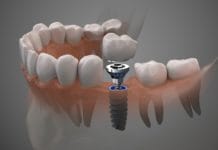Health care workers are currently in extreme demand, and dental hygienists are no exception. A huge need for dental hygienists exists, with many job openings available. Not all job positions are the same, though, or what you might necessarily be looking for. This article will aid in sorting through all the job listings, and what to ask employers to get the answers you need to find the right fit for you.
There are many ways to find a job: word of mouth, job search websites, networking events, or even social media. It can be overwhelming at times. Job ads can be very detailed, which is very helpful in figuring out if that is what you are looking for.
On the other hand, many job ads are very short, basic, and generic, creating more questions than answers. Many times, ads seem like it is a copy-and-paste template ad. These are the ones you may see shared on social media to show how silly job ads can be. I’ve seen ads that use terminology incorrectly or such laymen terms that you know a dental professional did not write.
One example I have seen a few times is, “Looking for a rockstar dental hygienist who can scrape plaque in a fast-paced environment…” Huh? These types of job postings are undermining what dental hygienists are. We are not just teeth cleaners! Does this job involve being double booked or such a packed schedule you are guaranteed to fall behind and experience burnout?
Research Employers Too
During the job searching process, you should do your own research. Employers are doing research on you, so why not them too? Read their ads and see if it even makes sense for you to apply. Look at their office’s website and social media pages. Where is it located? Who works there? Is it worth the wage for the amount of time commuting?
In addition, check out what they are posting on social media or the office’s website. Some websites have a “meet the team” or allow you to take a virtual tour of the office. It is nice to have a brief idea of who’s who in the office. You can also use this information to your advantage during the interview process. For example, you can find something in common and use that as an icebreaker.
You may also notice job ads from the same office on and off frequently. To me, this is suspicious. I am thinking, “Why do they continually have job openings?” This shows this job and office may have a lot of turnover. I would also see what the patient base is saying. There are business review websites online and on social media. Looking at reviews from patients can give you a small glimpse of the patient’s perspective of the office, those who work there, and the care they received.
Questions for Interview
So now you have done your research and are preparing for the next step, the interview. I always believe in having a set of questions ready for the employer or whoever you are interviewing with.
Interviewing is a two-way street; having questions ready shows employers that you came prepared. They are seeing if you make a good fit, but you are seeing if they and the office are where you want to work. Here are some great questions that you may want to consider asking:
What is the actual position?
This may seem like an obvious question, but what is the job, and what does it entail? What are the expectations and job description (duties, tasks, and responsibilities)? Sometimes a job description on a job listing is very vague, and even during the interview, it can be not very clear.
Are there job duties besides patient care? For example, are you expected to schedule and confirm patients, keep a detailed inventory of dental supplies, or mop the floor each night? You may not find any of these as red flags; you just need to know what is expected.
What are the hours? Days? Full or part-time?
What does the office consider to be full-time? Are they flexible? Do they work long shifts and weekends?
What is the wage? How are you being paid?
Will this be hourly or production/commission-based? If you are to be paid based on production, is it based on actual production and the treatment you provide to a patient in your chair or what the office collects? Are there incentives or bonuses?
I strongly recommended researching the average wage a dental hygienist makes in your area. Spring Hatfield, RDH, BSPH, in a Today’s RDH article, wrote, “Avoid asking about wages on social media as many circumstances can vary. For instance, someone may comment and report a rate well below what you deserve, or the opposite – a rate that is completely unreasonable for the practice you are employed with or looking to gain employment. The same can be said about “salary surveys” that you may find online; just because someone reports what their wage is in a survey doesn’t mean it’s an accurate representation of where they live, where you live, or in the sweet spot of 30-35% of their production. Wages not only vary state by state but city by city making the cost of living influence fair wages. For instance, the cost of living in Los Angeles, California, is most likely greater than the cost of living in rural Montana. Occupational wage breakdowns can be found on state employment websites. These breakdowns often give the lowest 10% of wage ranges to the highest 90% of wage ranges and the average for specific areas in the state.”1
Once you know the wage range for your specific area, never undersell yourself. You have an education, experience (even as a new grad), and skills. Know your worth and always advocate for yourself, especially in the way you make a living.
Are there any benefits?
I believe this is important, especially in this day and age. Will there be benefits such as health insurance, vacation or sick time, 401K, paid time off, CE compensation, etc.?
What are their COVID-19 protocols and policies?
This is important because you should feel safe in your work environment. Are you given the PPE and additional equipment to do your job safely for yourself and your patients? Are the public health guidelines being met and followed properly?
How much time do you have for each type of appointment?
Are new patients seen by the hygienist instead of with the doctor, and if so, how much time is a new patient appointment? How much time will you have for periodontal maintenance, gingivitis treatment, prophy, or non-surgical periodontal therapy appointment? What is the difference in time for adults, teens, and children? It is 100% okay for new grads to ask for more time when first starting. In addition, what procedures and assessments are expected to be completed at each type of appointment (such as periodontal charting or radiographs)?3
What does their perio program look like?
Personally, I interpret this as what is the office doing when they have a patient with some form of periodontal disease? What are their policies around treating and maintaining periodontally-involved patients? What are the hygienists using in terms of certain equipment or procedures for their periodontal patients (such as ultrasonics, local anesthetics, lasers, and new technologies)? Are the patients given certain recommendations or products (such as prescription mouth rinses, flossing aids, oral irrigators, electric toothbrushes)? At what time would a patient be referred out?
What does a typical schedule look like?
Do you schedule your own patients, or does the front desk do that? What is the average number of patients you would see per day? Does the office limit the number of patients scheduled per day for non-surgical periodontal therapy, or will you have days where they are scheduled back-to-back-to-back? How much time do you have for a break or lunch?3
Does the office have patient cancellations or late patient policies?
Do you have to treat patients no matter how late they arrive to their appointment? Or are patients rescheduled if they are later than 10-15 minutes into their appointment time? Are you being sent home early or coming in late due to patient cancellations? Are you told to clock out when a patient does not show up? If the answer is yes to clocking out due to a patient not showing up, this is a huge red flag because it is illegal and goes against federal law and the Fair Labor Standards Act.2 On the other hand, being asked to leave early, come in late, or take a longer lunch break is legal.2 Personally, this is very important because it affects my schedule and would also affect me financially.
Can you tour the office and possibly shadow one of the dental hygienists?
Can you imagine yourself working there? Is it a good fit work environment-wise? Is it clean? What does an operatory and sterilization area look like? What equipment, products, and instruments are they using, and what shape are they in? Do those instruments look ten years old and dull? How often are you able to replace your instruments and ultrasonic tips? Do current employees seem happy, or do you get a feeling of toxicity in the air?
Do you share similar professional beliefs?
Do their ideology and beliefs around patient care match up or are similar to yours? If you find yourself not on the same page as your fellow hygienists, other dental professionals, the doctor, or the office philosophy as a whole, this may cause conflict, stress, or frustration.
Some employers’ answers to these questions can send up red or green flags right away. If a potential employer is telling me I need to clock out in between patients because of a no-show, a red flag alarm is going off in my head. If a position has guaranteed hours and benefits, that is a green flag or a check mark off in my mind during the interview.
I have gone through interviews and office tours during this process, knowing I would not take this job because of what was either discussed or what I saw during my tour. For example, if the office looks very outdated with extremely old equipment and instruments. I’ve seen operatories with carpet, which is problematic in terms of infection control.
I observe if the office is clean as well as what their sterilization area looks like. During tours, I can see how the staff is working as well. Are they following safety and infection control procedures? I’m alarmed when I witness cross-contamination and breaches in infection control protocols. You may be able to walk by the operatories, so you are able to observe a glimpse of patient care.
Miscellaneous
Who decides on the products and supplies the office buys? Are you allowed any input? Are you able to get new instruments or other needed supplies if needed? Is time allotted for instrument sharpening?3
In Closing
With this additional information, you can start to determine if this is your next move. Is this a long-term job position for you? What are you looking for in your career? Will accepting this job position improve your well-being and health? Sometimes, we are at work more than being at home, so can you be happy in this work environment?
If you question whether your current job benefits you, makes you happy, or if it’s a good fit, then it is time for a new chapter, even when it can be extremely difficult. For me, change is hard, but change and being uncomfortable is where further growth happens. Quality work life is an important part of one’s overall life. And you deserve it!
Before you leave, please consider checking out the Today’s RDH self-study CE courses. All courses are peer-reviewed and non-sponsored to focus solely on high-quality education. Click here now.
Listen to the Today’s RDH Dental Hygiene Podcast Below:
References
- Hatfield, S. (2022, May 4). Wage Wars: Hygienists Should Calculate Fair Wages and Know Their Worth. Today’s RDH. https://www.todaysrdh.com/wage-wars-hygienists-should-calculate-fair-wages-and-know-their-worth/
- Vavrosky, K. (2019, January 2). 6 Things Hygienists Wish Their Doctor/Boss Knew. Today’s RDH. https://www.todaysrdh.com/6-things-hygienists-wished-their-doctor-boss-knew/
- Viger, D. (2019, February 3). Finding the Perfect Office: It Begins with the Interview. Today’s RDH. https://www.todaysrdh.com/finding-the-perfect-office-it-begins-with-the-interview/










